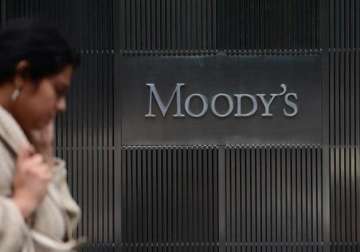New Delhi: A weak monsoon is likely to be credit negative for India as it is expected to push up food inflation as well as government deficits, global rating agency Moody's said today.
The Indian Meteorological Department (IMD) has revised its monsoon forecast for 2015 from "below normal" to "deficit".
"A weak monsoon is credit negative for India because it lowers agricultural output, increases food inflation and adds to government deficits," said a Moody's Investors Service report.
The magnitude of the negative effect will depend on the actual spatial and temporal distribution of rainfall as well as policy measures the government adopts in preparation and in response, it added.
"...a weak monsoon would likely raise food prices, which have been rising faster in India than the global average. Because food accounts for more than 50 per cent of average household spending in India...higher food prices pinch household budgets in India to a greater degree than elsewhere, and hurt GDP...," the agency said.
India's inflation touched double digits in 2012 and 2013 partly because of high food prices, but is now below the RBI's January 2016 target of 6 per cent, it said.
Decline in inflation and flagging private sector consumption as well as investment growth have led the Reserve Bank to cut the policy rate by 75 basis points since January, but the forecast of a weak monsoon season will curtail further rate reductions, the agency said.
Inflation, as measured on the Wholesale Price Index (WPI), has been in the negative zone since November, 2014. Retail inflation in April softened further and fell to a four-month low of 4.87 per cent.
Moody's said that below-average rainfall in 2014 slowed agricultural output growth to 0.2 per cent that fiscal year, compared to 3.7 per cent the previous year, when rainfall was at average levels.
Latest Business News
